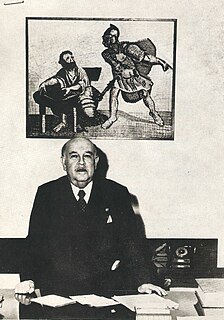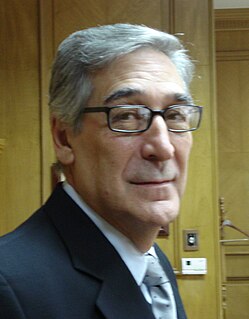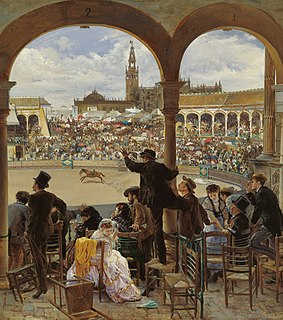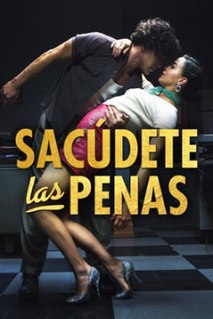Related Research Articles

Alfonso Reyes Ochoa was a Mexican writer, philosopher and diplomat. He was nominated for the Nobel Prize in Literature five times.

Instituto Tecnológico y de Estudios Superiores de Monterrey (ITESM), also known as Tecnológico de Monterrey, is a secular and coeducational multi-campus private university based in Monterrey, Mexico. ITESM has since grown to include 36 campuses throughout the country, quickly becoming one of the most prestigious universities in Latin America.

Everardo Elizondo Almaguer is a Mexican economist who has worked for private, public, and academic institutions. By senatorial appointment, he served as deputy governor of the Bank of Mexico —the country's central bank— from 1998 to 2008.

José Emilio Pacheco Berny

Costumbrismo is the literary or pictorial interpretation of local everyday life, mannerisms, and customs, primarily in the Hispanic scene, and particularly in the 19th century. Costumbrismo is related both to artistic realism and to Romanticism, sharing the Romantic interest in expression as against simple representation and the romantic and realist focus on precise representation of particular times and places, rather than of humanity in the abstract. It is often satiric and even moralizing, but unlike mainstream realism does not usually offer or even imply any particular analysis of the society it depicts. When not satiric, its approach to quaint folkloric detail often has a romanticizing aspect.

Ismael Serrano is a singer-songwriter and guitarist from Spain, popular in Spain and Latin America, known for his often political lyrics and eclectic musical influences. During his creative career he has been influenced by other Spanish singer-songwriters such as Joaquín Sabina, Joan Manuel Serrat and the Cuban Silvio Rodríguez amongst others. His music also shows influences from renowned poets such as Luis García Montero and Mario Benedetti.

The Cervantine Library Spanish: Biblioteca Cervantina is a library located on the main campus of Tecnológico de Monterrey, in the city of Monterrey, N. L, México.The library has about 130,000 items in its collection, with its holdings on Mexican history and culture ranked second in the Americas. It also houses series of photographs covering the history of Mexico and Monterrey during the 19th and 20th centuries.

José Bódalo Zúffoli was an Argentine born Spanish film actor.
Enrique Canales (1936–2007), born in Monterrey, Nuevo Leon, Mexico, was a technologist, editor, political analyst, painter, and sculptor.
El Norte is a daily newspaper printed and distributed in Monterrey, Nuevo León, Mexico.
Rodrigo Elias Martínez Abed, best known as Rodrigo Abed is a telenovela and film actor. He is best known as "Fabián Sanchez Serrano" in Cuando seas mia.
Humberto Elizondo Kauffman is a Mexican actor of film and television, the son of Mexican diplomat Humberto Elizondo Alardine and Canadian actress Fannie Kauffman. Currently, he portrays Aquiles Trueba in Un refugio para el amor.
Ismael Aguilar Barajas is a professor and researcher in economics and sustainable development at the Monterrey Institute of Technology and Higher Studies, Campus Monterrey, whose work has been recognized by the Sistema Nacional de Investigadores.

Evangelina Elizondo was a Mexican actress and singer from the Golden Age of Mexican cinema. She starred in movies, television and theater. She was an accomplished artist having studied at the National School of Painting and had a degree in theology. She wrote two books and recorded numerous albums. In 2014, she received a Premios Arlequín for her contributions to Mexican culture.

Zeferino Peña Cuéllar, also known as Don Zefe, is a Mexican suspected drug lord and high-ranking member of the Gulf Cartel, a criminal group based in Tamaulipas, Mexico. He was part of the cartel during the 1990s, and was a trusted enforcer of former kingpins Gilberto García Mena and Osiel Cárdenas Guillén. From 1999 to 2001, he served as the municipal police chief of Miguel Alemán. Peña Cuéllar reportedly relied on corrupt Mexican military officials to run drug trafficking activities in Tamaulipas. This group of military officers would later become the foundation for the creation of Los Zetas, the Gulf Cartel's former paramilitary group originally made up of ex-soldiers. In the cartel, he headed organized crime operations in the municipalities of Gustavo Díaz Ordaz, Camargo, Miguel Alemán, Mier, and Guerrero.

Sacúdete las penas is a 2018 drama and musical film directed by Andrés Ibáñez Díaz Infante. The film premiered on 27 April 2018 in Mexico, and is stars Emmanuel Orenday, and Melissa Barrera. The film was filmed mostly at the San Luis Potosí Arts Center.

Ramón Paz Ipuana was a venezuelan writer, researcher, linguist and poet of wayuu origin. He is considered one of the most important writers in the Wayuu language.
References
- 1 2 3 4 5 6 "Ricardo Elizondo Elizondo". Enciclopedia de la Literatura de México. Retrieved June 13, 2018.
- 1 2 3 4 5 6 7 8 Vertiz de la Fuente, Columba (August 25, 2013). "Fallece el escritor Ricardo Elizondo Elizondo a los 63 años". Proceso. Retrieved June 13, 2018.
- 1 2 3 4 5 6 7 Vazquez, Abraham (March 3, 2007). "Ricardo Elizondo: Todos sus rostros". El Norte. Monterrey. p. 5.
- 1 2 3 4 5 6 7 8 De la Fuente, Daniel (November 5, 2013). "El pionero del desierto". El Norte. Monterrey. p. 132.
- 1 2 3 4 5 6 Rivera Villegas, Andreo (May 5, 2007). "Ricardo Elizondo Elizondo: Narrativa del Desierto". Fondo de Cultura Economica. Retrieved June 13, 2018.
- 1 2 3 4 5 6 "Ricardo Elizondo: murió la voz de la frontera". La Frontera. August 26, 2013. Retrieved June 13, 2018.
- ↑ Villegas, Gabriela (October 18, 2015). "Recuerdan perfección de Ricardo Elizondo". El Norte. Monterrey. p. 11.
- ↑ ""Los talleres de la vida" moldea estilo costumbrista de Elizondo". 20 Minutos (Notimex). January 14, 2016. Retrieved June 13, 2018.
- ↑ "Relatos de Ricardo Elizondo Elizondo". Proceso. June 27, 1981. Retrieved June 13, 2018.